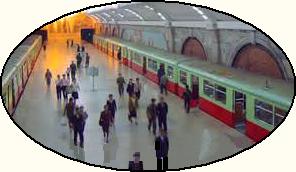Spadina Literary Review — edition 7 page 23
.../
Returning to Pyongyang — where, whatever the situation elsewhere, the government made sure the cadres had their food supplies delivered to their door — Jang Jin-sung began to pour his feelings into what he calls “realist” poetry. Since any writer who composes a work not specifically assigned by the Korean Workers Party “is by definition guilty of treason,” says Jang, he wrote his poems at home in secret. Here is an example:
This boy was brought up on watery rice broth.
I give him a bowl of real rice on his birthday,
But he stamps his feet and refuses it.
“This isn’t rice!” he protests, holding his ground.
Jang’s defection came in January 2004. The immediate cause was a couple of dumb mistakes that you would think people would be conditioned not to make in a draconian society.
Because Jang needed to make his South Korean persona and poetry convincing, as if they had truly sprung from the South Korean milieu, he had access to South Korean publications forbidden to other North Koreans. Jang loaned one such publication to his pal Young-min. It was a South Korean book that looked at the Kim family history and altho censors had blacked out parts of it, you could read everything by holding the pages up to the light. Lending that book to Young-min was a dumb move. The rule was, if you disclose this restricted material to another person, you will be executed for treason.

Pyongyang metro: check your belongings
Then this Young-min guy goes and leaves his bag with the restricted book in it on a subway train.
Jang and Young-min felt their only choice was to flee, for the book would surely be turned over to authorities, who would easily trace who the culprits were. There could be adverse consequences for their families if they defected, but things would be worse for everybody (so Jang gives us to understand) if the pair stayed and confessed to treason.
Since the shortest route from Pyongyang to South Korea was unfeasible since it required crossing the hermetically sealed DMZ — the Demilitarized Zone that divides the Korean peninsula between North and South — the fugitives instead caught a train north to Musan where they could cross the frozen Tumen River to the Chinese side. This is a well-known escape route. However, according to Jang's narrative, trains in North Korea run absurdly late. It took five days for the pair to cover the 480 km from Pyongyang to Musan. Yet no one intercepted them, nobody at all in this control-freak kingdom called ahead to post a watch on the railstops. Hard to believe, isn’t it?
It’s lucky our heroes were lucky because they sure weren’t James Bond. Outside Musan station, they ask a stranger for directions to the river. They trudge the riverbank for hours trying to work up the nerve to cross. There are guards about, but apparently gifts of cognac and cigarets will help to convince them that you're there on official business. When finally Jang and Young-min do make their dash across the ice, the guards don’t shoot at them. Perhaps, one of the characters suggests later, they are forbidden to fire toward the Chinese side.